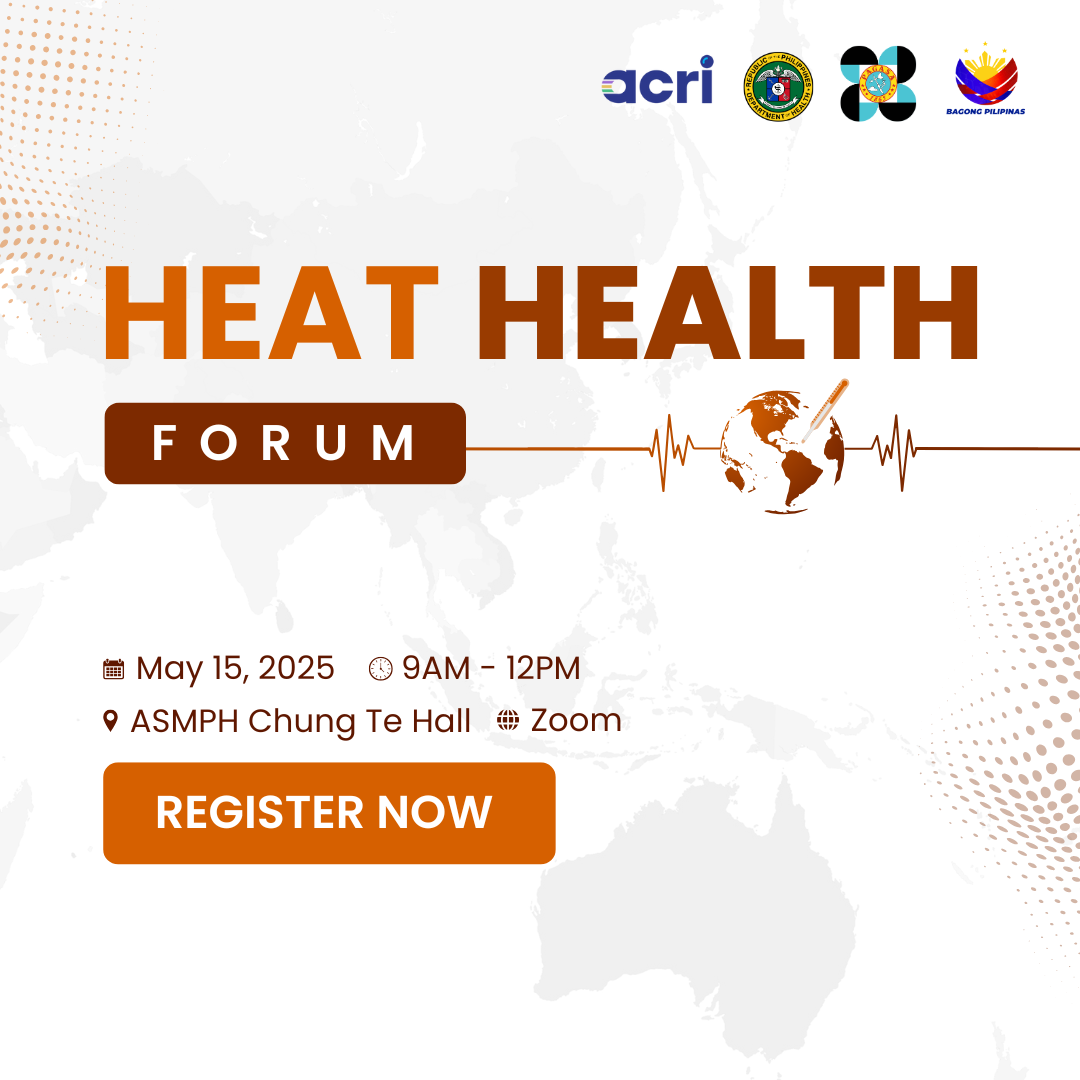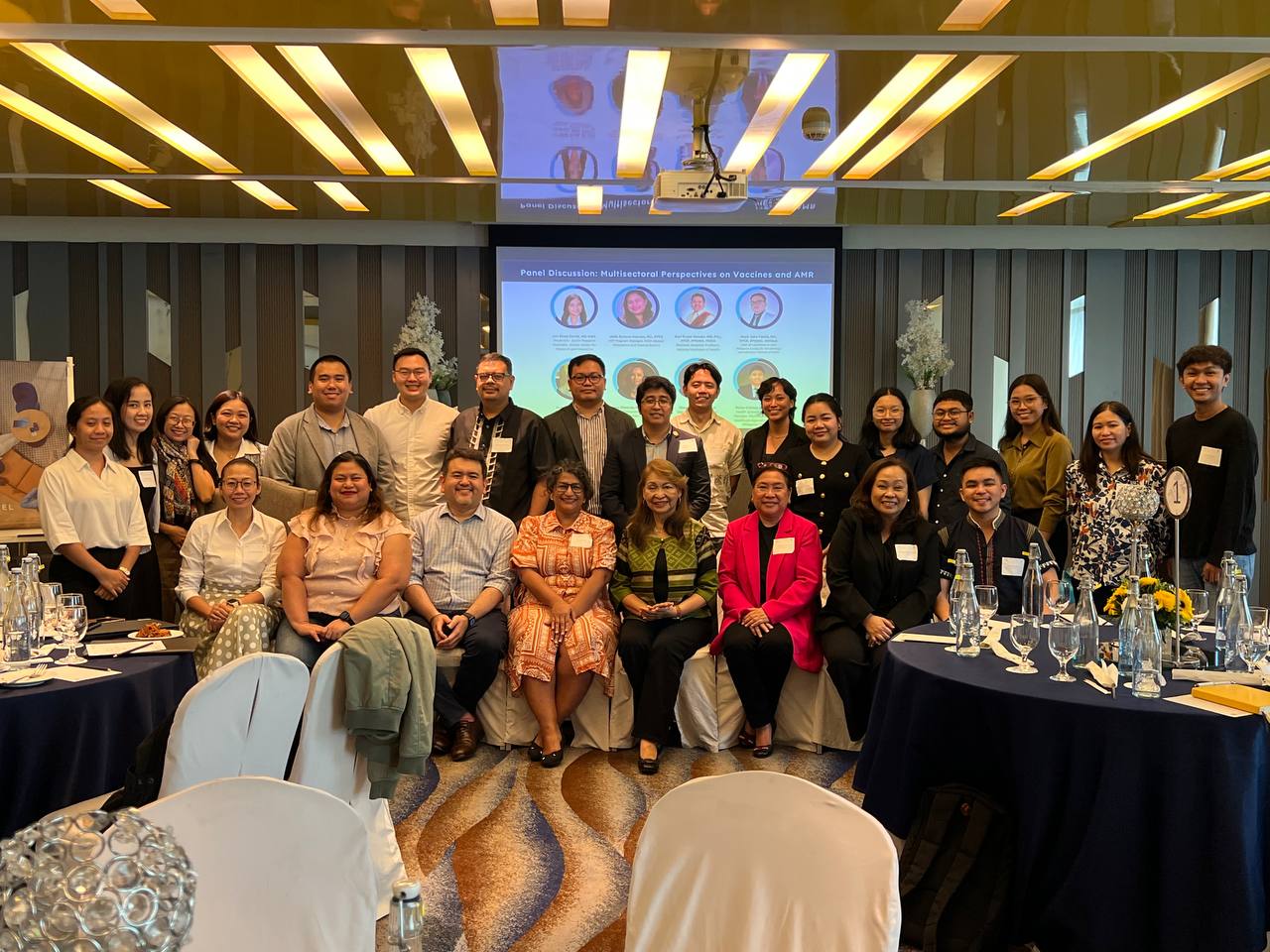
Heat Health Forum 2025: Strengthening Our Response to a Warming Philippines
As temperatures continue to rise across the country, the health impacts of extreme heat are becoming an urgent public health concern. The Heat Health Forum, happening on May 15, 2025, is a timely and vital gathering that aims to strengthen the Philippines' national strategy for addressing the growing risks of heat-related illnesses and climate-driven health threats.
The forum will bring together government agencies, climate and health experts, academic institutions, and future professionals to share insights, evaluate existing efforts, and build a coordinated response to heat health.
The event will feature discussions on the prevalence and trends of heat-related illnesses, the effectiveness of current warning systems, and actionable strategies for protecting vulnerable populations such as children, the elderly, and outdoor workers. Through collaborative breakout sessions, participants will help shape key recommendations for a comprehensive Heat Health Action Plan, aimed at both immediate action and long-term resilience.
📌 Date: May 15, 2025
📍 Venue: Chung Te Hall, Ateneo School of Medicine and Public Health, Ortigas Avenue, Pasig City
🌐 Access: Zoom
📝 Register here: https://forms.gle/3RoQvNMPv5CcpKpG9
Whether you're a public health professional, student, policymaker, or advocate, your voice matters in shaping the future of climate and health in the Philippines. Join us and be part of the solution.
-

The Unseen Link: Vaccines and Antimicrobial Resistance in the Philippine Context
Antimicrobial resistance is already claiming lives, and the global pipeline for new antibiotics is shrinking. In August 2025, experts gathered to explore a critical question: Can vaccines become a frontline weapon against AMR? The science is clear—by preventing infections, vaccines reduce antibiotic use and slow resistance. But translating this into action means confronting data gaps, political barriers, and financing challenges. As one expert noted: "When we vaccinate, we reduce the frequency of these diseases. That means fewer antibiotics—used and misused." With no country in the Global South yet integrating vaccines systematically into AMR strategies, the Philippines has a chance to lead—if stakeholders can move from consensus to action.
-

Advancing vaccine uptake to mitigate antimicrobial resistance (AMR) in low and middle-income countries of South or South-East Asia
This project explores how strengthening vaccine uptake can serve as a key strategy to mitigate antimicrobial resistance (AMR) in the Philippines and across South and South-East Asia. By reducing the burden of vaccine-preventable diseases and the unnecessary use of antibiotics, the study aims to provide actionable recommendations for national and institutional stakeholders to better integrate vaccination initiatives into AMR control efforts, ultimately contributing to stronger, more resilient health systems.
